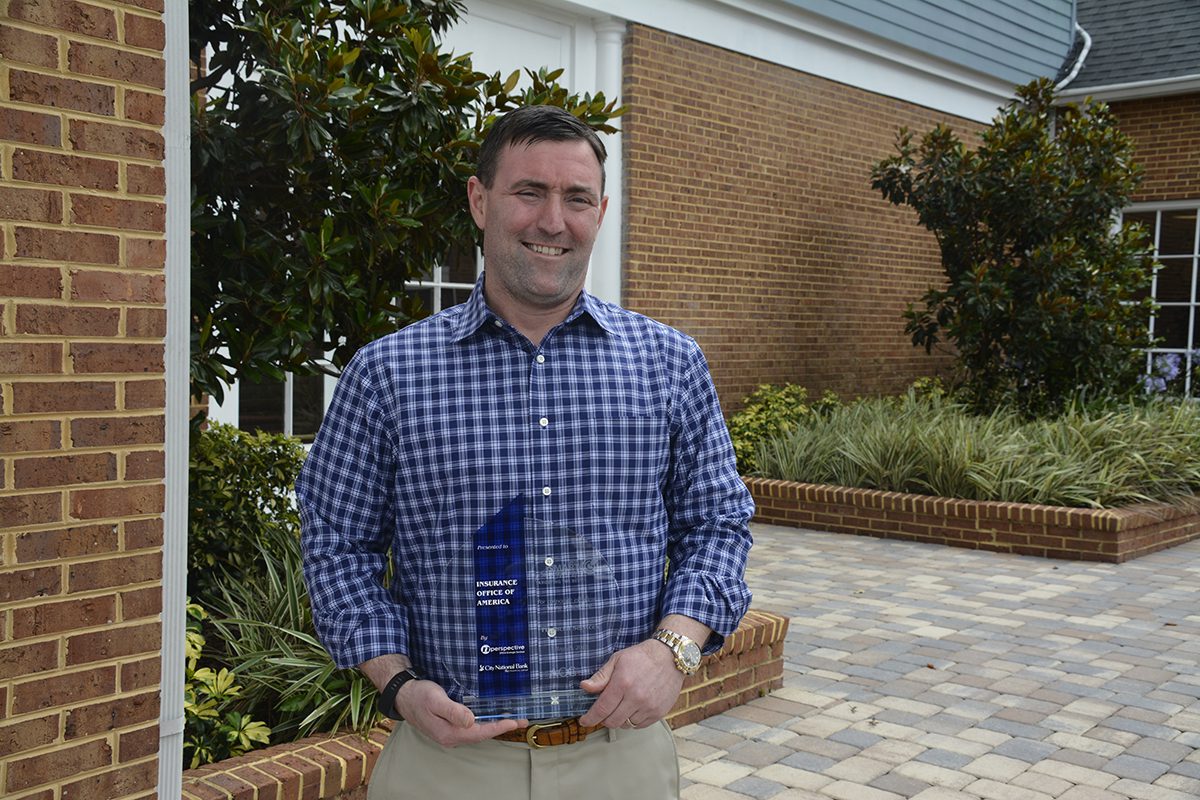The world’s economic sector has been forced to adjust and acclimate to the new reality of the COVID-19 pandemic. One industry particularly impacted by COVID-19 and the rise of technology has been the insurance sector. Heath Ritenour, chairman and CEO of Insurance Office of America has been vocal about leading his company through the pandemic while integrating new technological advancements.
Compelled as much by the pandemic as by the rapidly changing times we live in, Heath Ritenour had more than a few thoughts to share regarding how businesses can prepare for success in today’s very different world.
Meet Heath Ritenour
During times of uncertainty, people look to leaders who can provide encouragement and inspiration. Heath Ritenour stepped up to lead Insurance Office of America during the COVID-19 pandemic. He changed his daily routine while refocusing on what matters most to make both life and work flourish.
Heath grew up following his father, John Ritenour, into the insurance field. After watching his father erect a business for more than 30 years, Heath would eventually accept the reigns, working his way up from intern to CEO in 2008. As Heath Ritenour began to carve out his career and clarify his roles in the business, he quickly came to believe that the way to prosperity was outworking everyone in the room.
As the CEO of IOA, Heath was looked upon to guide his company through the turbulent times that COVID-19 introduced to the world.
Insurance and the Pandemic: Navigating an Old Industry in New Ways
From the very onset of the COVID-19 pandemic to its ease in the face of mass vaccination drives, the modern workplace has changed dramatically. In the days, weeks, and months following the first lockdown measures, businesses went into overdrive as they turned to technology to continue running operations as close to normal as possible.
As the chairman and CEO of Insurance Office of America, Heath Ritenour had to focus on making sure that things kept running smoothly by focusing on certain core elements. When it came time to operate during and following the pandemic, Heath used his experience to focus on the following concepts:
Improve Customer Service
Insurance companies exist within a very specific space for most people. Monthly charges to protect against potential downturns in the future could be offset by many people during the pandemic. Automobile policyholders, for example, could save money due to a reduction in total miles driven as a result of the pandemic. For IOA, improving customer service during the pandemic meant going the extra mile to make sure clients were taken care of.
The 2020 COVID-19 pandemic saw shoppers turn to the internet to find the right platforms for their needs. As a result, it was increasingly difficult to stand out in a field that had grown suddenly hypercompetitive. Due to increasingly informed consumers, businesses have had to become better at meeting the demands of modern customer service.
Integrate New Technology
The insurance industry has come a long way since the first insurance company spread its roots in colonial Philadelphia in 1752. Where once we exchanged signed pieces of paper with our brokers, clients and insurance agents can work together remotely through new interactive technology. For Heath Ritenour, innovation has been a throughline for most of his career.
Ritenour points to a study performed by Bain & Company that showed digital adoption in the insurance sector growing by nearly 20% in 2020 alone. Ritenour says, “I think you’ll see more new, innovative insurance products, more technology, and probably more consolidation.”
Of course, the pandemic introduced a range of new challenges that only technology could help to overcome. Early adoption of COVID-19 quarantine and social distancing measures would yield productive results for Heath and the team at IOA. Heath says, “We’ve proven to be able to work quite effectively remotely.”
A simple example of technology integration due to the pandemic is the incorporation of secured document signing systems like DocuSign. Remote platforms with skilled workers can continue to engage with one another in meetings, providing flexible hours, all while connecting with clients. Heath continues by pointing out the importance of these changes to the insurance sector specifically, “Historically, the insurance industry has been rife with antiquated operational practices, cumbersome paperwork, and other factors that have slowed down the process.”
Implementing New Products
As the industry changes and evolves with COVID-19, Heath understands that product diversity will become increasingly important. Many opportunities for innovation within the insurance industry were created due to the pandemic and savvy companies embraced them. Auto insurance policies opting for a pay-per-mile approach appealed to consumers looking to cut back on their premiums during a time when regular travel wasn’t normal.
Another product Heath Ritenour suggests is business interruption insurance, policies created for businesses that are forced to suddenly close without notice. From Heath’s perspective, the savviest insurance carriers are going to analyze the language of their current policies while developing new products for unforeseen situations, like a pandemic.
How Companies Can Accept Changing Workplace Dynamics
According to the research team at the Pew Research Center, the coronavirus outbreak has fundamentally changed the way we approach our day-to-day work. Nearly half of all teleworkers said, according to a study by Pew, that they are enjoying “more flexible hours.” A study by the Pew Research Center revealed that at least 71% of workers were operating out of their house at least part of the time. As the pandemic continues to fade into the past, more and more offices are going to try and shift back to work as usual. However, Heath believes that embracing these new changes can lead to success, citing his own company as an example.
Turning to IOA, leader Heath Ritenour underscores how remote work and virtual meetings allowed clients and employees to meet for quality interactions whenever they were necessary. Remaining virtual has both introduced a new dynamic while also developing a better experience for both parties. Insurance agencies can save money on travel while clients can enjoy advanced access to the services that they need to succeed. Heath Ritenour says of this new change, “We will be able to reach individuals in a modern, meaningful way.”
Examples of the insurance agency embracing new technology and changing workplace dynamics have been captured in the aforementioned Bain & Company report. According to its survey, digital adoption is surging as more companies offer online claims and status-checking services.
Insurance Office of America and Heath Ritenour
Despite his business success, Heath Ritenour had to overcome a cancer diagnosis and the corresponding perspective shift that it brought. Heath decided to share his journey with his employees, raising awareness instead of sinking into the powerlessness that he said he felt. In doing so, Heath personally helped three employees detect cancerous tumors, potentially saving their lives in the process.
Heath Ritenour has spent the majority of his life in and around the insurance industry. Heath Ritenour joined the IOA team in the mid-90s, became CEO in 2008, and accepted the chairman position in 2019. As the leader of IOA, Heath continued his father’s work, leading the brokerage to grow into the 18th largest privately-owned insurance brokerage in the United States.
































